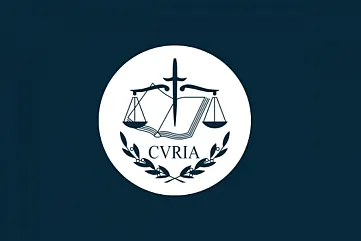Tuesday 5h November
Judgment in Case C-192/18 Commission v Poland
Lowering of retirement age for Polish judges and prosecutors
There will be a press release for this judgment
Besides the ongoing infringement proceedings against Poland regarding the lowering of retirement age for the judges of the Polish Supreme Court and, in this context, the independence of that latter Court (in which the judgment will be delivered on 24 June), a second infringement case is also in progress against Warsaw with a similar subject-matter.
In that latter case, the Commission has called into question, for two reasons, the legality of national rules governing the organisation of the judiciary in Poland, the adoption of which preceded the introduction of national legislation specifically relating to the Supreme Court and being under scrutiny in the aforementioned infringement proceedings.
First, the Commission is of the view that the distinction in the contested national rules between the retirement age for men (65 years) and women (60 years) working as ordinary judges, Supreme Court judges and prosecutors is not compatible with the Equal Treatment Directive (2006/54/EC).
Second, the Commission affirms that, by lowering the retirement age applicable to ordinary court judges, and at the same time granting the Minister for Justice the right to decide whether to extend the period of active service of judges wishing to continue working as a judge despite reaching the retirement age, Poland has breached its obligation to ensure the citizens’ effective judicial protection within the scope of application of EU law.
Thursday 7th November
Opinion in Case C-215/18 Primera Air Scandinavia
Jurisdiction to hear a claim for compensation for a long delay of a flight booked via a travel agency
By judgment of 9 July 2009 in the Rehder Case, the Court of justice ruled that a claim for compensation (under Regulation 261/2004) following the cancellation or a long delay of an intra-EU flight can be brought by passengers either before the court of the place of departure or arrival of the aircraft, in addition to the court within the territorial jurisdiction of which that airline has its head office.
A Czech woman launched before the Czech Courts a claim for compensation against Primera Air Scandinavia, a Denmark-based airline, for this airline having delayed by more than four hours a flight connecting Prague with Keflavik (Iceland) that the woman had booked via a travel agency. Before the Czech Courts, questions arose however as to the jurisdiction of these courts to hear the matter at issue as the case-law elaborated in the Rehder Case applies only to situations, where there is a contractual relationship between the passenger and the airline, which is at dispute here since the passenger had entered into such a relationship only with the travel agency and not with the airline.
In this context, the Obvodní soud pro Prahu 8 has asked the Court if the existence of a contractual relationship between the passenger and the airline can yet be established in the case at hand on the basis of the contract concluded between the passenger and the travel agency.
Should such a contractual relationship be established, the Czech court would also like to know if that relationship is to be qualified as an international air transport relationship or as a consumer relationship within the meaning of the EU regulation on jurisdiction (44/2001/EC).
General Court
An appeal may be brought before the Court of Justice against the decisions of the General Court
Thursday 24th October
Judgment in Case T-601/17 Rubik’s Brand v EUIPO
Registration of Rubik’s cube as an EU trade mark
There will be a press release for this judgment
At the request of Seven Towns, a UK company which manages, inter alia, intellectual property rights relating to the ‘Rubik’s Cube’, the European Union Intellectual Property Office (EUIPO) registered in 1999, as a three-dimensional EU trade mark, the following cubic shape in respect of ‘three-dimensional puzzles’:
In 2006, Simba Toys, a German toy manufacturer, applied to EUIPO to have the three-dimensional mark cancelled on the ground, inter alia, that it involved a technical solution consisting of its rotating capability, since such a solution may be protected only by patent and not as a trade mark. EUIPO dismissed its application and Simba Toys thereupon brought an action before the General Court in which it sought annulment of EUIPO’s decision.
By its judgment of 25 November 2014, the General Court dismissed the action brought by Simba Toys on the ground that the cubic shape in question did not involve a technical function such as to preclude it from being protected as a trade mark. In particular, the General Court took the view that the technical solution characterising the Rubik’s Cube did not result from the characteristics of that shape but, at most, from an internal and invisible mechanism of the cube.
Simba Toys appealed against the judgment of the General Court to the Court of Justice, which, by its ruling of 10 November 2016, annulled the General Court’s judgment as well as the EUIPO’s contested decision. The Court of Justice held that, in examining whether registration ought to be refused on the ground that that shape involved a technical solution, EUIPO and the General Court should also have taken into account non-visible functional elements represented by that shape, such as its rotating capability.
In the light of the Court of Justice’s judgment, the EUIPO issued a new decision on 19 June 2017 by which it cancelled Seven Towns’ Rubik’s Cube trade mark.
Rubik’s Brand Limited, a branch of Seven Towns, has challenged the EUIPO’s new decision before the General Court claiming that this decision is not compatible with the aforementioned judgment and other judgments of the Court of Justice as well as with the Regulation on EU Trade Marks (207/2009/EC).
Zdroj: CURIA


















